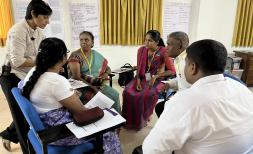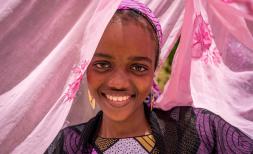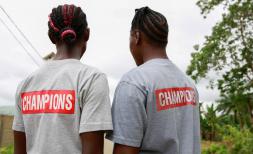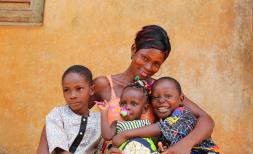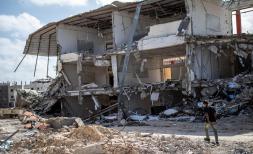A Child Leader’s Advocacy – Nilmini*’s story
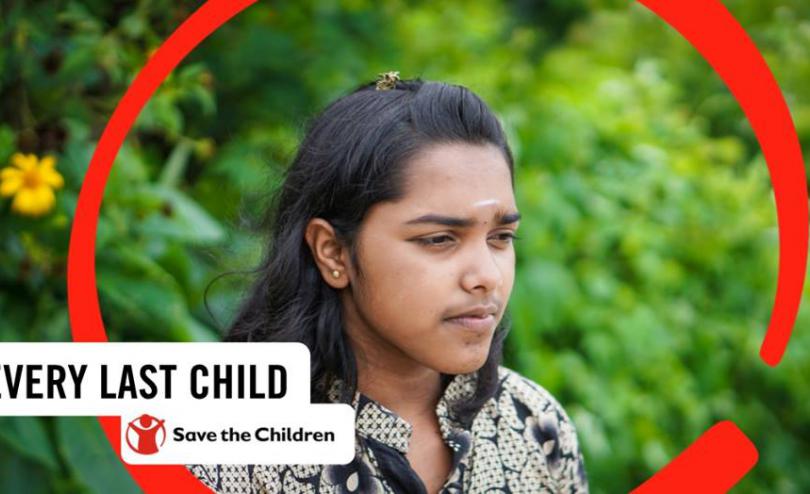
During the five years my mother and I were apart, we spoke only once a week.
Amma would phone every Friday, but she could only afford a 10-minute call. Each conversation was filled with the things we both could not say. I did not tell her about how much I missed her, how I suffered because she had left me and gone; she did not tell me about how hard she had to work, how lonely she felt or how much her leg hurt from standing all day.
Instead, I would ask her when she was going to come home, and she would repeat the date, comforting both of us. For a few minutes, we would talk about the doings of friends and family.
When Amma first left, I was 12-years-old. My grandfather and my aunt and uncle said they would take care of me. My father had left us long before, and now had a new family. Amma had to go to work, so she could make a life for both of us. I understood that, but it did not make it easier.
At school, there were other children like me whose mothers had also left. For one reason or the other, none of us had fathers either. Both our parents were lost to us.
I was lucky that my aunt loved me like her own child, but still there are some things you can only say to your mother. If someone touches you in a bad way, who can you tell other than your mother? I saw how the children around me struggled. Without their mother to talk to, they kept their pain inside.
I have found writing is a big comfort to me. I write poems and essays; sometimes I write about my mother, sometimes I write about myself. I share this with the other kids who are part of the children’s club on my estate. Through Save the Children’s mother and child friendly plantations programme, we created a magazine where I wrote an essay. We also made films about our experiences as left behind children.
I even acted in one film, in which I played a girl whose father helps her. Later when I watched it, I cried because I could imagine now what it felt like to have a father’s love. It was actually a kind of relief for me. Rather than keeping it all inside, I think it is better to tell others.
I am also happy to see that what I have created has an impact on other people. When government officials come and tell parents they should not leave their children alone, parents do not always listen. But if their children tell them, they begin to reconsider. We children are affected too, and it is our right to speak. For those of my friends who lived with their parents, this movie made them think about our plight.
I understand that parents have to work, but why can they not look for work closer to home? When a child is by herself, it is also important for teachers and government officials to check on the kids - instead left behind children are often neglected.
As a result of what we have gone through, I have become very close to my friends at the children’s club. We tell each other everything about our lives. We are all the same age, and so we do not judge each other. I do not have any siblings, but the other members are now my brothers and sisters.
In the meantime, my mother has returned to us. She used the money she earned abroad to set up a small grocery shop. I am so glad to have her home, I no longer feel lonely. We were able to tell each other all the things we did not say in those phone conversations. My mother cried when I told her how much I had missed and needed her.
I will be 18-years-old this year. I do not have to do so much housework anymore, because my mother wants me to have time to study. I am determined to become a lawyer. That way I will be able to fight for the rights of people who have been exploited. If I am successful, it will make Amma’s sacrifices worth it.
Sri Lanka is perceived as an important country for the supply of unskilled labour. The number of migrants from Sri Lanka has been increasing annually and reached about 300,773 workers leaving in 2014 (mainly Middle East) reported by the Sri Lanka Bureau of Foreign Employment (SLBFE). Migration uproots a family’s stability and the resulting separation and reduced care negatively impact the social, physical health and psychological development of left behind children. The development of a physically nurturing relationship between children left behind and their remaining caregivers is a common challenge. One of the most profound impact is on education, with migration of parents resulting in school drop-outs or irregular school attendance. Girl children experience the greatest impact due to changes in their roles within the home with increased responsibilities in child care and domestic duties.
Save the Children in Sri Lanka advocates for safe child care plan, that is in the best interest of the child, to be put in place by parents considering migration.
No child should be deprived of not being able to achieve their hopes and dreams. When children stop going to school it’s the #EndofChildhood #EveryLastChild.
